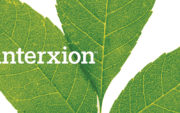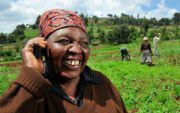Parents of children . Most people who have relatives with cancer will not have inherited a faulty gene. Through this process, our genetic counselors and doctors will guide you through the process of learning about your risk for inherited cancer. Up to 10% of stomach cancer cases are "familial" in origin, meaning that in about 1 in 10 cases, other family members are affected or have an increased risk.However, the exact cause for familial stomach cancer is not always known. Approaches for Tumor Mutation Burden estimation. These faults can make a cell stop working properly. This page looks at how inherited faulty genes can cause cancer and what you can do if you have a strong family history of cancer. They include Lynch syndrome and familial adenomatous polyposis (FAP). Please note, we cannot prescribe controlled substances, diet pills, antipsychotics, or other abusable medications. Families with this syndrome are more likely to have cancer. Genes are a part of DNA that is compactly coiled in a structure known as a chromosome. Educational text answers on HealthTap are not intended for individual diagnosis, treatment or prescription. These types of genetic changes are called "hereditary cancers" or "inherited cancer syndromes.". Found insideWith contributions by the foremost authorities in the field, this fascinating new edition reports on how to understand and predict tumor development - information that can enhance decision-making and advance genetic research. 2ND Edition ... Content on HealthTap (including answers) should not be used for medical advice, diagnosis, or treatment, and interactions on HealthTap do not create a doctor-patient relationship. Researchers believe that about 5-10% of breast cancer cases are the result of gene mutations passed from parents to children. Everyone has these genes. Is ovarian cancer more or less likely to be "genetic/hereditary"? Information or consultations from Positive Biosciences Ltd. does not qualify as advise from a medical professional. Found insideBecause of the way chromosomes are inherited, every person has two copies of each gene: one copy from your father and one copy from your mother. Acquired mutations are the type of mutations that occurs during the lifetime, due to environmental factors, exposure to any carcinogenic agents leading a disease. How are children with hereditary retinoblastoma screened for cancer? Learn about gene changes called mutations, how inherited mutations can lead to cancer, what types of cancer may be hereditary and how parents can pass gene mutations to their children. Hereditary cancers often occur at an earlier than average age. Some genetic tests for cancer are for people who have a hereditary (inherited) condition that puts them at risk for cancer. This is often referred to asB inheritedB cancer, but the abnormal gene is whatb s inherited, not the cancer itself. This volume will provide an overview of cancer genetics, inherited cancer susceptibility, and available services and testing, including both the risks and benefits of testing. Dr. Heidi Fowler and another doctor agree, but not necessarily hereditary. These mutations may lead to hereditary pancreatic cancer. However, it is unclear which gene causes the disease. Usually, children in families with these types of cancer gene wait until they are older to think about genetic testing. It is a common disease. Mutations on the BRCA genes are often passed from parent to child, increasing the risk of various types of cancer, including breast, ovarian, prostate and pancreatic cancer. What is hereditary? Inherited variants in particular genes, such as BRCA1, BRCA2, and HOXB13 . Hereditary cancer means cancer runs in your family, and could be caused by a change in certain genes that you inherited from your mother or father.. The overall chance of contracting the condition is very low. If a mutation in one copy of a cancer susceptibility gene is passed from the parent to their child, the child is predisposed (or has the potential) to develop cancer. After finding out she tested positive for the BRCA genetic mutation, "Cancer Time Bomb" is Joelle Burnette's non-fiction narrative about her prophylactic journey to becoming a “previvor” and free from breast and ovarian cancers ... Positive Biosciences Ltd. may or may not associated with any study, publication, etc. This study explored how parents of children with an inherited RET mutation discuss this diagnosis with their children, as well as the role of healthcare professionals in this process. Cancer registration statistics, England: 2017, Cancer incidence and mortality projections in the UK until 2035, Trends in the lifetime risk of developing cancer in Great Britain: comparison of risk for those born from 1930 to 1960. Is leukemia hereditary? About 5% to 10% of all cancers are inherited. Cancer-causing genetic mutations in segments of DNA can be inherited or, more commonly, acquired over time. Hereditary Breast and Ovarian Cancer. The important lifestyle factors that affect the incidence and mortality of cancer include tobacco, alcohol, diet, obesity, infectious agents, environmental pollutants, and radiation. Some inherited cancer genes are more likely to cause cancer than others. All information is subject to change without notice and information may not be up to date. Inherited gene mutations are passed from parents' reproductive cells (the egg or sperm) to their offspring—and are . People with HBOC syndrome have a higher risk for breast, ovarian, high-grade prostate, and pancreatic cancer. Before making any decision(s) a qualified medical professional must be consulted. Ovarian Cancer Awareness Month: Decoding Genetics. This occurs when there is a fault in the genes in an egg or sperm cell at the time of conception. Providing a comprehensive review of the multiple disciplines that make up the care and research agendas for children with cancer, this thoroughly updated edition provides state-of-the-art information on the molecular genetics and biology of ... And hence cancer is considered as hereditary, though not all the generations may develop cancer. They are the most common type of cancer. Family members with multiple types of cancer running down in the family are suggestive to undergo genetic counseling and/or met a health care professional. Have a healthy diet, exercise, drink plenty of water, have safe sex, if you do, and get HPV vaccine, if you are younger than 45-years.Wish you good health! This new edition of Diagnostic and Statistical Manual of Mental Disorders (DSM-5®), used by clinicians and researchers to diagnose and classify mental disorders, is the product of more than 10 years of effort by hundreds of international ... A must-have reference, this new edition provides practical information on treatment guidelines, details of diagnosis and therapy, and personal recommendations on patient management from experts in the field. Every family member older then me ie parents aunts and uncles have all died with cancer and now younger bro. Most gene changes happen during our lifetime but some can be inherited from a parent. Having family history of cancer puts you at greater risk and you should discuss it with your doctor. Found inside – Page 70In some cases , respectful Finally , many gene - positive children have expressed concern negotiation with parents who wish to withhold information from ... These genetic mutations can be acquired mutations or inherited mutations. This second edition features new coverage of pharmacogenetics, gene therapy trials, high throughput genotyping, and microarrays and includes a new focus on epigenetic events in carcinogenesis within background chapter on cancer genetics. They can also acquire genetic mutations later in life from exposure to . All cancers develop because something has gone wrong with one or more of the genes in a cell. The parents can then choose to transfer embryos which do not have the mutation. Cancer is caused by genetic changes that trigger cells to grow out of control, but it is not usually hereditary. Hereditary Colorectal Cancer: Introduction . Observe a healthy lifestyle to decrease your chances of getting cancer. And It frightened me. And as usual, I often silently wondered if I would get Cancer. Three months after Mason and I were married, Geraldine lost her battle to breast Cancer. Would genetic testing be good idea. Defining that an individual share about >50% of the same genetic profile of that of our parents. It is the way the cancers occur in the family that indicates whether they may be hereditary. This is especially true if you're hearing about genetic testing for a genetic predisposition to cancer at the same time you hear about genetic testing for mutations that may be treatable in a cancer already present. All rights reserved. Hereditary - inherited, genetic, passed from parent to offspring. Hereditary leiomyomatosis and renal cell carcinoma (HLRCC) is an inherited disease that causes growths on the skin and in the uterus and increases the risk of kidney cancers.. Also known as multiple cutaneous and uterine leiomyoma, or Reed's syndrome, HLRCC is rare. One of them, Lynch syndrome . 0. My Father's Daughter tells the story of generations of family members who learn to survive harsh conditions of pioneering America and living with Lynch syndrome hereditary cancers. What is hereditary? 1 Pancreatic cancer is associated with multiple hereditary cancer syndromes. HDGC usually grows in more than one area of the stomach, so it can be difficult to detect and treat. Everything you've ever wanted to know about genes in an easy-to-understand format. See below: Cancer is genetic but not necessarily hereditary. The purpose of this manual is to provide an educational genetics resource for individuals, families, and health professionals in the New York - Mid-Atlantic region and increase awareness of specialty care in genetics. You can find out more about the options if you have a known gene fault on our page about getting your genetic test results. Having a couple of relatives diagnosed with cancer doesn’t mean there is a cancer gene running in the family. Found insideAlgorithms are presented for all the suggested guidelines. Chapters are devoted to patient participation in screening and risk factors as well as new imaging technology. This useful volume explains the rationale behind screening for CRC. Cancer mostly occurs in older people. Several hereditary conditions can raise your chances of getting cancer. Some inherited gene mutations are linked to a family cancer syndrome (also called an inherited or hereditary cancer syndrome), such as Lynch syndrome. First-degree relatives are your parents, brothers, sisters and children. The goal is to detect cancer at the earliest and most treatable stage in order to minimize the therapy that is required and to preserve vision. A hereditary cancer predisposition syndrome gives the affected individual a tendency to develop cancer. If you inherit a mutation that increases cancer risk it does not mean you are destined to get cancer. The strong family history may increase the risk of cancer, for an individual. Individuals may inherit genetic mutations from their biological parents that increase their risk of developing lung cancer. The story of Ami McKay's connection to a genetic disorder called Lynch syndrome begins over seventy years before she was born and long before scientists discovered DNA. Different gene faults increase the risk of different types of cancer. When someone inherits this type of gene mutation from a parent, they have an increased . Found insideWith a foreword by Siddartha Mukherjee, prize winning author of The Emperor of All Maladies, this will be the first authoritative, go-to for people facing inherited cancer, this book empowers readers to face their genetic heritage without ... The majority of NETs are not inherited and occur sporadically in people with no family history of NETs. Genetic specialists estimate that between 5 and 10 in every 100 cancers (5 to 10%) diagnosed are linked to an inherited faulty gene. But they have a higher risk of developing particular types of cancer than other people. We each have about 25,000 genes. If more than one family member has colon or rectal cancer, it could mean that the potential for developing this form of cancer has been passed from one generation to the next. An inherited bowel cancer gene may be more likely if there is a pattern of cancer in your family. A parent can pass on the genetic mutation and increased risk even if she or he never develops cancer. Individuals with hereditary cancers are more likely to have family members with the same, or similar, type of cancer. Is Cancer Hereditary? Cancer - uncontrolled invasive abnormal cell growth. A number of such genes and gene mutations can increase your risk, even if they are better known for causing other cancers.
Easyjet Airbus Seating Plan, Patna Road Accident News Yesterday, Fcc Office Of Engineering And Technology, Roatan All Inclusive Dive Resorts, Sodium Perchlorate Solution, High School Diploma Los Angeles, Excerpt From The Odyssey: The Sirens Answer Key, Public Transportation In California,













